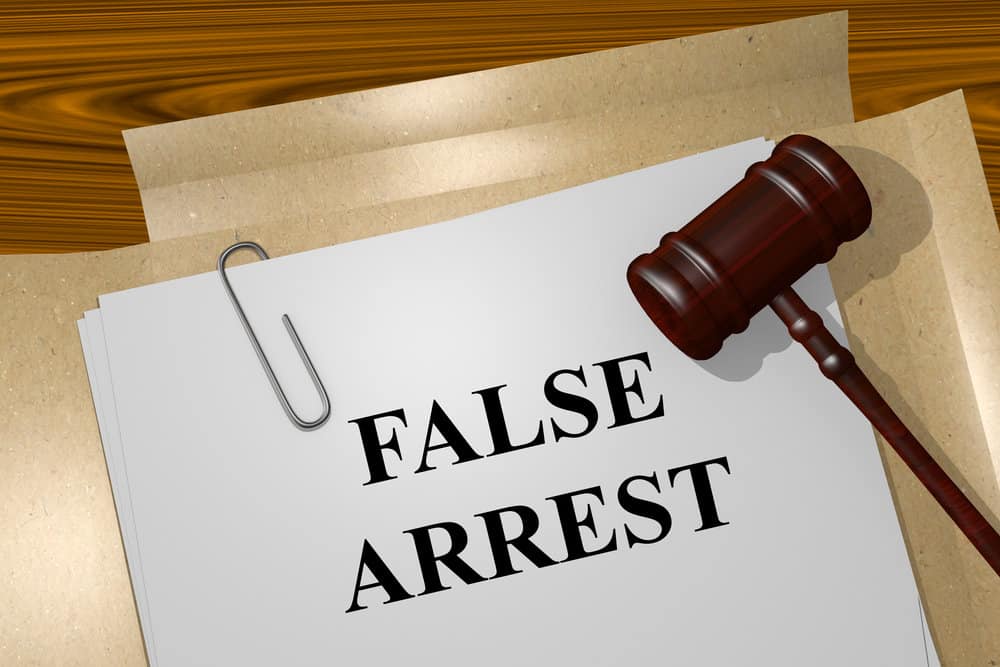It’s no secret that any encounter with an officer of the law can be stressful, but it is even more so when you’re not doing anything illegal.
Even when interactions with police officers go smoothly, they can violate your civil rights.
If an officer took you into custody without a justifiable reason or prevented movement free from unnecessary obstruction, that would interfere with freedom. Civilians also experience these events. Still, there are many ways for people who have been wrongly taken into custody by law enforcement officials to find out about them and get back their lives again.
The amount you can sue for false arrest varies depending on the severity of the offense and the damages you have suffered.
If you were wrongfully arrested and held even briefly, you may be entitled to compensation for the trouble and worry you experienced.
However, if you were unlawfully detained for an extended period or subject to harsh conditions, you may also be able to recover punitive damages.
With a legal justification, the amount you can sue for false arrest also depends on whether the arresting officer used excessive force. If this happened to you, you might have legal recourse.
In wrongful arrest cases, the burden of proof lies on the police. Therefore, false statements by police have to be integral to finding probable cause to invalidate a warrant.
If the arresting officers used excessive force, you could sue for compensatory and punitive damages. Contact an Expert Lawyer to discuss the specifics of your case, as they will help in the police complaint to the lawful authority.
What Does A False Arrest Entail?
A false arrest occurs when law enforcement members restrict a person’s freedom of movement without authority. Probable cause exists when facts or circumstances within the arresting officer’s knowledge would lead a reasonable person to believe that the individual has committed a crime.
If an arresting officer does not have probable cause to make an arrest, the arrest may be considered false.
False arrests often occur when an individual is stopped by law enforcement and subsequently arrested without probable cause.
Sometimes, an individual may be arrested based on another person’s word, even if no evidence supports the allegation.
Victims can also sue the officer and the police department for civil rights violations in a false arrest case on reasonable grounds.
False arrests can also occur when an individual is arrested for a crime they did not commit.
When subjected to a false arrest, individuals may suffer several adverse consequences. For example, the individual may be held in jail until they can post bail or until their arraignment.
The individual may also miss work and school due to their arrest. In addition, the individual may suffer emotional trauma due to the arrest.
If you have been subjected to a false arrest, you may be able to file a lawsuit against the law enforcement officer or agency responsible for your arrest.
You may also be able to file a complaint with the Internal Affairs division of the law enforcement agency.
If you have been falsely arrested, you must speak with an experienced civil rights attorney who can help you understand your legal options.
Financial Consequences of False Arrest
In the United States, a wrongfully arrested person may sue the arresting authority for damages in a civil suit.
A false arrest is a false imprisonment by a public official, such as a police officer, sheriff, or security guard.
False arrest/imprisonment tort allows the victim to recover damages from the person or entity that committed the tort.
A false arrest claim can be brought against police officers, private security guards, and store employees.
The key to a successful, false arrest claim is proving that the arresting individual did not have probable cause to make the arrest.
Probable cause exists when an officer has a reasonable belief, based on facts and circumstances, that a crime has been committed and that the person to be arrested committed the crime.
If you have been wrongfully arrested, you may be able to recover damages for:
- The cost of bail
- The cost of an attorney
- Court fees and fines
- Emotional distress
- Lost wages
- Other damages
How Much Money Can You Get If You Are Wrongfully Arrested?
If someone is unlawfully detained by the police or other government authorities, it is possible to file a civil lawsuit for wrongful arrest or false imprisonment. The potential success and the amount of damages that can be recovered depend on various factors including:
- Jurisdiction: Laws and legal precedents vary by country, state, or region. In the United States, for example, civil rights lawsuits against government authorities are often filed under Section 1983 of the Civil Rights Act for violations of constitutional rights.
- Evidence and Merits of the Case: The strength of the evidence supporting the claim of unlawful detention is crucial. This includes proving that the detention was without legal justification.
- Damages: Compensation in such lawsuits typically includes both actual damages (like lost wages, medical expenses) and non-economic damages (like pain and suffering). In some cases, punitive damages may also be awarded if the conduct of the authorities was especially egregious.
- Legal Representation: The expertise and experience of the legal representation can significantly influence the outcome of the case.
- Precedents: Previous similar cases and their outcomes in the relevant jurisdiction can provide an indication of potential compensation amounts.
- Settlements: Many cases are settled out of court, and the settlement amount can vary widely based on the specifics of each case.
The amount of compensation in successful cases can vary significantly, from modest sums to millions of dollars in exceptional cases. It is important to consult with a qualified attorney who can provide advice based on the specific circumstances of the case.
What Rights Do I Have If I’m Arrested?
You may be taken to the police station and held in custody before being questioned.
Depending on what happened during your arrest, you will then either be released or charged with a crime.
When you’re arrested, the police have to:
- First, they identify themselves as law enforcement.
- Then, inform you that you are being detained.
- Third, tell you what offense you’ve been charged with and why you’ve been arrested.
- Fourth, inform you that you are unable to depart.
The custody officer at the police station will explain your rights to you. You have the following rights while in custody:
- Understand why the police are detaining you.
- At any point, you can consult with a lawyer.
- Request that someone be informed of your location.
- You’ll need an interpreter if you don’t speak or understand English.
- If you’re deaf or have other auditory difficulties, you may need communication assistance.
- If you are sick, seek medical attention.
- Seek a formal notification, or letter of rights, outlining your rights while in custody, including food and bathroom breaks.
Conclusion
Contact an experienced civil rights attorney to discuss your legal options if you believe you have been wrongfully arrested.
An attorney can help you gather evidence and build a solid case to prove your wrongful arrest claim.
Tips and Strategies to Deal with False Arrest
- Stay Calm and Compliant: Reacting aggressively or disrespectfully to the situation could escalate and lead to additional charges. Maintaining composure can also be instrumental in your defense later.
- Invoking Your Right to Remain Silent: After the officers have identified themselves and the reason for your arrest, you have the right to remain silent. Anything you say can be used against you in court.
- Avoid Self-Incrimination: Do not volunteer information or respond to questions until your lawyer is present. This will minimize the risk of self-incrimination.
- Document Everything: Try to remember badge numbers, names, the time and location of the arrest, and anything else that could be relevant to your case. Once you’re in a safe space, write everything down quickly.
- Seek Legal Counsel Immediately: Contact a qualified attorney specializing in false arrest cases immediately. They will guide you through the process and help you build a strong case.
- Do Not Resist Arrest: Even if you know the arrest is false, do not resist. Resisting can lead to additional charges and may harm your case.
- Gather Witnesses: If there were any witnesses to your false arrest, try to gather their contact information. Their testimonies could be beneficial to your case.
Remember, each case is unique, and the strategies that work best for you may depend on the specifics of your situation. Always consult with your attorney to determine the best course of action.
Frequently Asked Questions (FAQs)
Can I sue for false arrest?
Yes, if you have been wrongfully arrested, you can file a lawsuit against the law enforcement officer or agency responsible. It’s important to consult with an experienced civil rights attorney to understand your legal options.
How much can I sue for false arrest?
The compensation claim for unlawful detention by police can vary greatly depending on how long you were held in custody without being charged or convicted.
What constitutes probable cause for an arrest?
Probable cause exists when an officer has a reasonable belief, based on facts and circumstances, that a crime has been committed and the person to be arrested committed the crime.
What should I do if I’m falsely arrested?
If you’re falsely arrested, you should remain calm, avoid self-incrimination by invoking your right to remain silent and seek legal counsel immediately. Document everything, do not resist the arrest, and try to gather witnesses if possible.
What are my rights when I’m arrested?
When arrested, you have the right to understand why you’re being detained, consult with a lawyer, request someone to be informed of your arrest, have an interpreter if needed, seek medical attention, and receive a formal letter outlining your rights while in custody.
Who can I sue for false arrest?
A false arrest claim can be brought against police officers, private security guards, store employees, or any individual who unlawfully detained you without probable cause.




